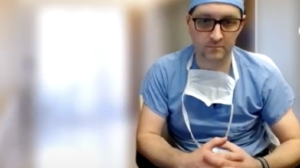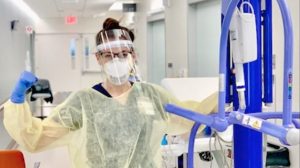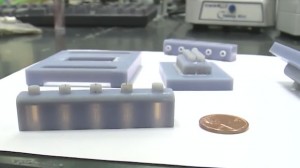NEW YORK (Reuters Health) – Onset of hyperthermia several days after acute ischemic stroke is strongly associated with greater morbidity and mortality at 3 months, investigators report.
A variety of studies has shown that body temperature after stroke is linked with outcomes, Dr. Ashfaq Shuaib and associates explain in the September issue of Stroke, but these have been limited by small sample sizes and temperatures were recorded at diverse times after stroke onset.
Dr. Shuaib, from the University of Alberta, Canada, and his team therefore accessed data on 5305 patients in acute stroke trials from the Virtual International Stroke Trials Archive database in order to determine the effect of hyperthermia, “in relation to time, on outcome after ischemic stroke.” Hyperthermia was defined as temperature exceeding 37.2 degrees C, and a poor outcome as a score higher than 2 on the 90-day modified Rankin Scale.
Patients’ average age was 68, and 45% were female. At 3 months, 996 patients (18.8%) had died.
Proportions of patients with recorded temperatures were 96% at baseline, 32% at 8 hours, 57% at 24 hours, 32% at 48 hours, 34% at 72 hours, and 31% at day 7. “Patients with missing follow-up had lower baseline temperatures,” the authors commented.
Hyperthermia was documented in 16% at baseline, 11% at 8 hours, 17% at 24 hours, 19% at 48 hours, 18% at 72 hours, and 9.3% at 7 days.
Hazard ratios indicated that the likelihood of a poor outcome was greatest at 7 days (HR 1.2 at baseline, 1.7 at 8 hr, 1.5 at 24 hr, 2.0 at 48 hr, 2.2 at 72 hr, and 2.7 at 7 days).
“Compared with normothermic patients, the mortality rates were significantly higher (p 11,000 mm3, and antibiotic use were all significantly associated with hyperthermia. The authors considered antibiotic use to be a marker for infection.
Severity of stroke turned out to be the strongest clinical predictor of hyperthermia.
“Aggressive steps to prevent and treat hyperthermia should be a part of management protocols for improving clinical outcomes after ischemic stroke,” Dr. Shuaib and associates advise.
Reference:
Stroke 2009;40:3051-3059.




